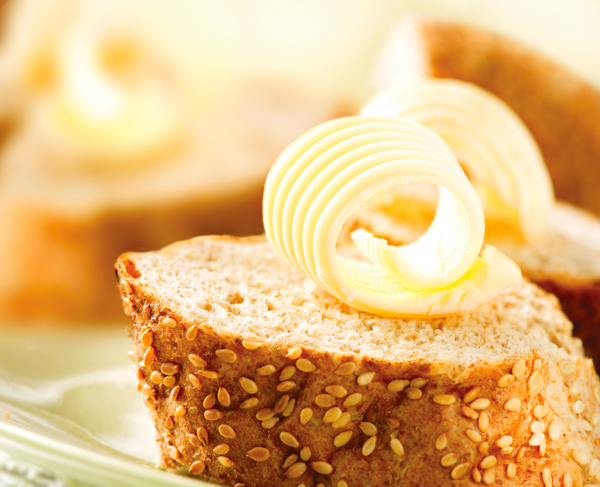By Janis Jibrin, M.S., R.D., Best Life lead nutritionist
As I got the butter out from my fridge the other day, a friend of mine commented in surprise, “You eat butter?”.
She’s right to question. For years, there was no butter in my kitchen because it contains a lot of saturated fat, which nutrition scientists believed could lead to heart disease and possibly increase the risk for cancer and even dementia. But being a nutritionist, I keep up with the food research, and things change. I started thinking of how my diet has changed over the past decade, and here are the main shifts; the ways I changed my own diet for the better.
I ENJOY BUTTER. Even after margarine was exposed as a trans fat nightmare, I still avoided butter because 63 percent of the fat in butter is saturated. I went along with the scientific thinking: If you eat too much saturated fat, levels of LDL (“bad” cholesterol) rise, and people with higher LDL are more likely to develop heart disease.
But recently, scientists have admitted that a critical dot isn’t connecting: Studies do not show that people who eat more saturated fat are at an increased risk for heart disease. It could be that their type of LDL (yes, there are different types of LDL, and yes, nutrition is a complex field!) isn’t the most dangerous one. Or maybe because saturated fat also raises levels of HDL (“good” cholesterol); the two counterbalance each other. Whatever the reason, experts are beginning to rethink their stance on saturated fat.
Until the science is clearer, I’m still limiting my butter. I enjoy a teaspoon on average daily. I’m also eating a little more full-fat cheese than I used to (another source of saturated fat).
I’M STRICT WITH STARCHES. I’ve always been a whole grain devotée—the only time a piece of white bread crosses my lips is at a restaurant, and it has to be exceptionally delicious to earn the privilege. But I was always liberal with oats, whole grain bread, bulgur wheat, quinoa and other whole grains.
Now that I’m older and have to be a tad more careful about calories, it’s these healthy grains I’m trimming slightly. That’s because they’re still high in calories. Breakfast is always high-carb, but I’m more careful the rest of the day—having an open-faced sandwich for lunch instead of two slices of bread, and maybe no starchy foods at dinner (which is usually fish and a big salad). More on Clearing Up Carb Confusion.
I LIMIT ADDED SUGAR. I love sweets—not the super-sweet kind, but dark chocolate or cookies and cakes that aren’t crazy-sugary. Even still, these are rife with added sugar (as opposed to sugar naturally found in fruit or milk; more on that here.) I recently settled on an “every other day” rule (as opposed to the “every day” non-rule I had before). Every other day, I can have a medium-size cookie, half a slice of cake, or another high-sugar item. On the “off” days—I allow myself a few bites of dark chocolate.
How has your diet shifted? We’re curious to hear about it.
Also Read:
7 Crazy Diet Tricks That Actually Work

